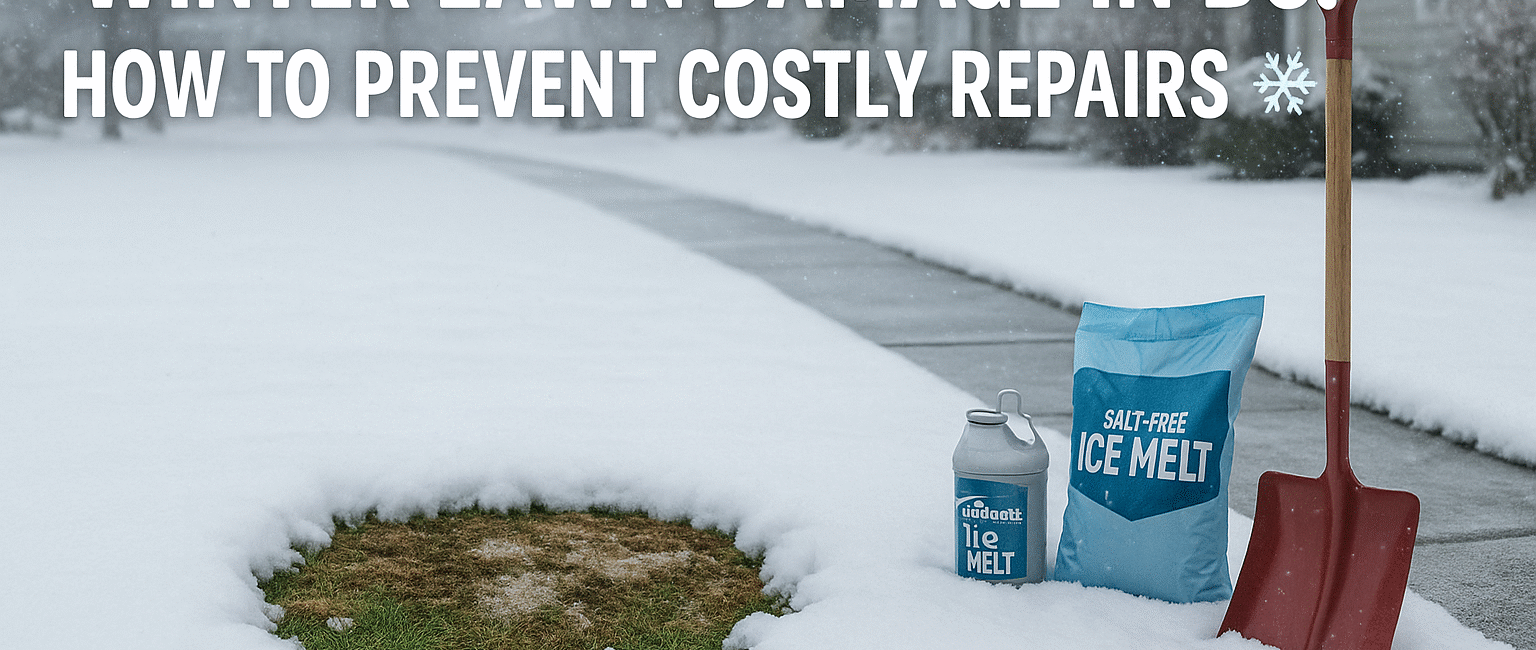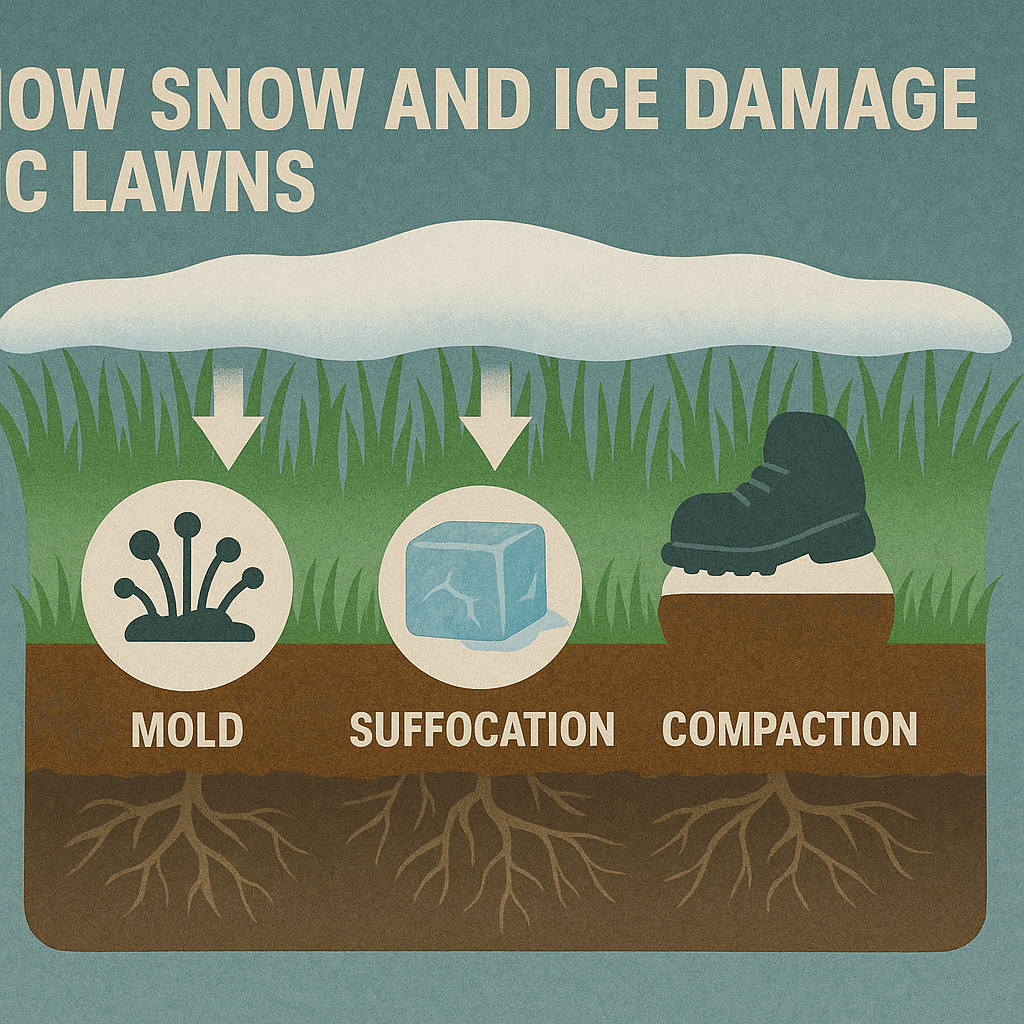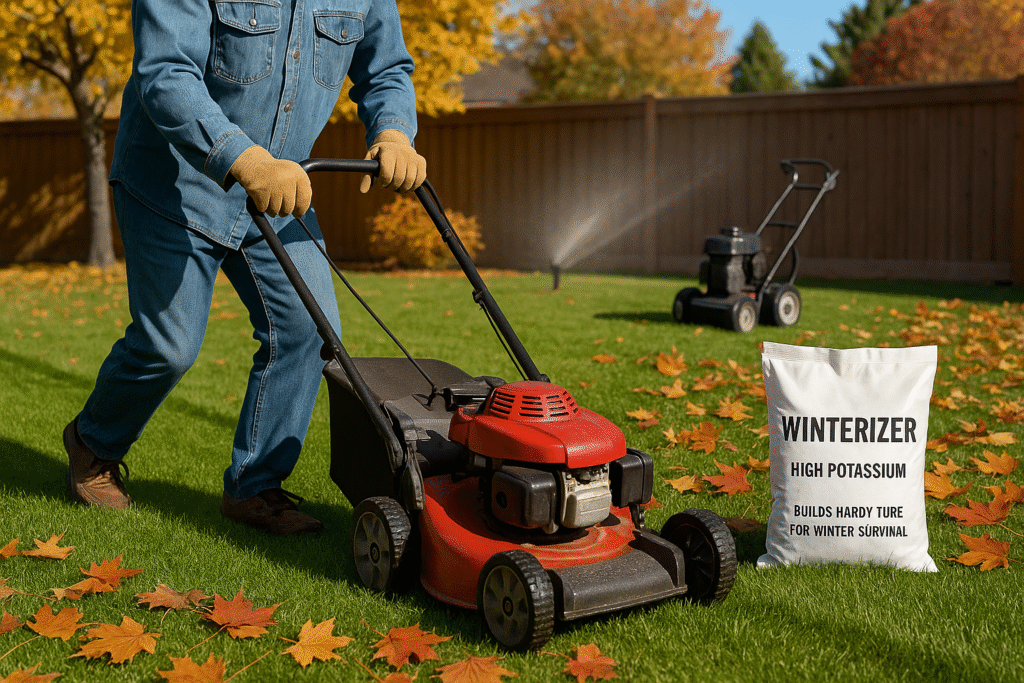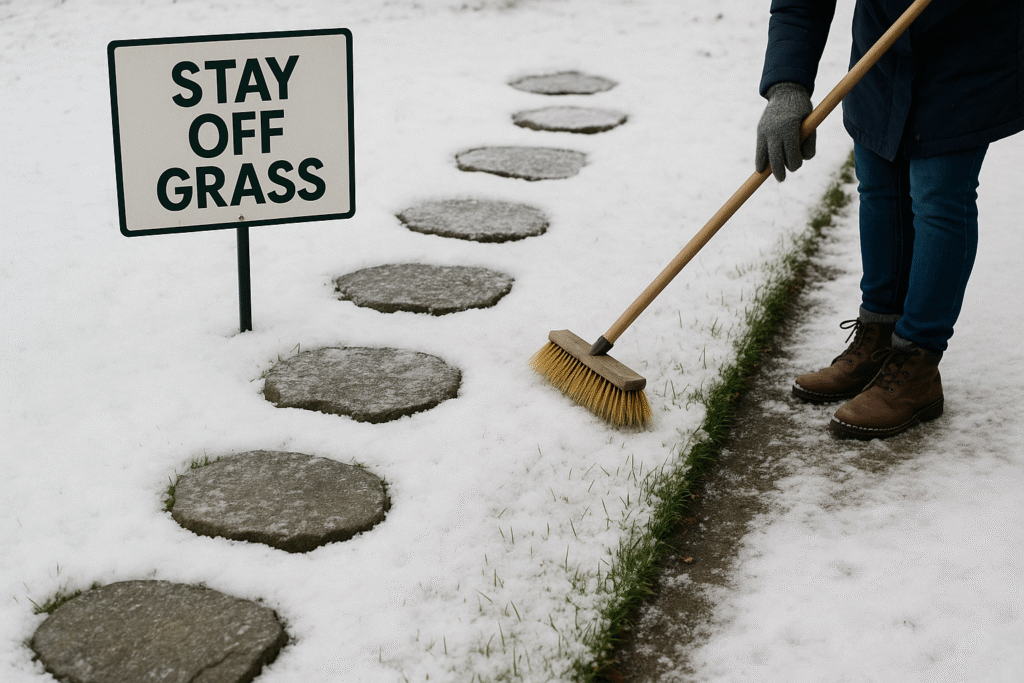
Winter in British Columbia brings beautiful snowy landscapes, but it can wreak havoc on your carefully maintained lawn. From Surrey to Vancouver and throughout the Lower Mainland, homeowners face unique challenges when protecting their grass from harsh winter conditions. Understanding how snow and ice impact your lawn—and knowing what to do about it—can mean the difference between a lush spring recovery and costly lawn restoration.
Why Snow and Ice Damage Your BC Lawn 🌨️
Snow might look harmless blanketing your yard, but it creates several problems for grass health:
Snow Mold Development
When snow sits on your lawn for extended periods, it creates the perfect breeding ground for fungal diseases like snow mold. This gray or pink fuzzy growth thrives in moist, cool conditions under snow cover. Surrey and Vancouver homeowners often discover these circular patches of damaged grass when snow melts in late winter.
Oxygen Deprivation
Thick snow layers prevent air circulation to grass roots. Without proper oxygen exchange, your lawn essentially suffocates. Ice formations make this problem worse by creating an impermeable barrier that blocks all air flow.
Crown Hydration Injury
BC’s freeze-thaw cycles cause particular damage through crown hydration injury. When grass absorbs water during mild days, then freezes during cold snaps, ice crystals form inside plant cells and rupture them from within.
Compaction from Foot Traffic
Walking on snow-covered lawns compacts the soil underneath, especially when the ground is wet from melting snow. This compression damages grass crowns and makes spring recovery more difficult.

Winter Lawn Protection Strategies for Lower Mainland Homes 🏠
Pre-Winter Preparation (October-November)
Final Mowing and Cleanup
Cut your grass shorter than usual for the final mow—about 2 inches rather than the typical 2.5-3 inches for BC lawns. Remove all fallen leaves, as they trap moisture and encourage fungal growth under snow.
Aeration and Fertilization
Late fall aeration helps prevent soil compaction issues. Apply a winterizer fertilizer with higher potassium content to strengthen grass roots against cold stress. Many Surrey lawn care services offer specialized winter prep packages.
Drainage Improvements
Address any drainage problems before winter arrives. Poor drainage combined with snow melt creates perfect conditions for root rot and other fungal diseases common in BC’s wet climate.

During Winter Protection
Avoid Foot Traffic
Stay off your lawn when it’s snow-covered or frozen. Create designated pathways using stepping stones or walkways to prevent compaction damage.
Gentle Snow Removal
If you must remove snow for safety reasons, use a leaf blower or broom rather than a shovel. Shoveling can damage grass crowns and create uneven surfaces.
Ice Management
Never use road salt or ice melting products on your lawn. These chemicals burn grass and contaminate soil. Instead, use sand for traction on walkways adjacent to your lawn.

Spring Recovery Tips for BC Lawns 🌱
When spring arrives in the Lower Mainland, your lawn needs special attention to recover from winter stress:
Gradual Exposure
Don’t rush to remove all snow at once. Gradual melting allows grass to adjust slowly to temperature changes and prevents shock.
Early Assessment
Once snow clears, inspect for snow mold, dead patches, and compacted areas. Document damage with photos to track recovery progress or for insurance purposes if needed.
Targeted Treatments
Apply fungicide treatments for snow mold if present. Overseed thin or damaged areas with grass seed varieties suited to BC’s climate, such as perennial ryegrass or fine fescue blends.
Common Winter Lawn Mistakes Vancouver Area Homeowners Make ❌
Leaving Equipment on the Lawn
Lawn furniture, decorations, or equipment left on grass creates dead spots by blocking air circulation and creating pressure points.
Over-Fertilizing in Late Fall
Applying nitrogen-rich fertilizer too late in the season encourages new growth that’s vulnerable to freeze damage. Stick to low-nitrogen, high-potassium winter fertilizers.
Ignoring Drainage Issues
Poor drainage problems become magnified in winter. Standing water under snow creates ideal conditions for root rot and other diseases.
Professional Winter Lawn Care in Surrey and Vancouver 🏆
While homeowners can handle basic winter lawn protection, professional services offer advantages:
- Specialized Equipment: Professionals have access to commercial-grade aerators, overseeders, and treatment equipment
- Local Expertise: BC lawn care specialists understand regional climate patterns and grass varieties
- Comprehensive Programs: Year-round maintenance programs include winter protection and spring recovery services
- Problem Diagnosis: Experienced technicians can identify and treat specific winter damage issues
📞 Ready to Protect Your Lawn This Winter?
Don’t let winter weather destroy your beautiful BC lawn! Whether you need professional winter preparation, spring recovery services, or year-round maintenance, finding the right local expert makes all the difference.
Visit BCServiceFinder.ca to connect with trusted lawn care professionals in Surrey, Vancouver, and throughout the Lower Mainland. Get matched with local experts who understand BC’s unique climate challenges and can keep your lawn healthy through every season.
Find Local Lawn Care Experts →
Frequently Asked Questions 🤔
When should I stop mowing my lawn before winter in BC?
Stop mowing when grass growth slows significantly, typically in late October or early November for the Lower Mainland. Your final cut should be shorter than usual (about 2 inches) to prevent matting under snow.
Can I use rock salt on my lawn to melt ice?
Never use rock salt or ice melting chemicals on your lawn. These products burn grass and contaminate soil. Use sand for traction on adjacent walkways instead.
How do I know if my lawn has snow mold?
Snow mold appears as circular patches of gray or pink fuzzy growth on grass when snow melts. The affected grass looks matted down and may have a musty smell. It’s common in Surrey and Vancouver due to our wet winter conditions.
Should I rake my lawn after snow melts?
Yes, but gently. Light raking helps lift matted grass and improves air circulation. Avoid aggressive raking that might damage recovering grass crowns.
When can I start fertilizing my lawn after winter?
Wait until soil temperatures consistently reach 50°F (10°C) and grass shows active growth, typically in March or April for BC. Start with a balanced fertilizer to support recovery.
Found this helpful? Share it with your friends on Facebook so they can make better decisions about protecting their lawns this winter! Your neighbors will thank you for helping them avoid costly spring lawn repairs. 👍


